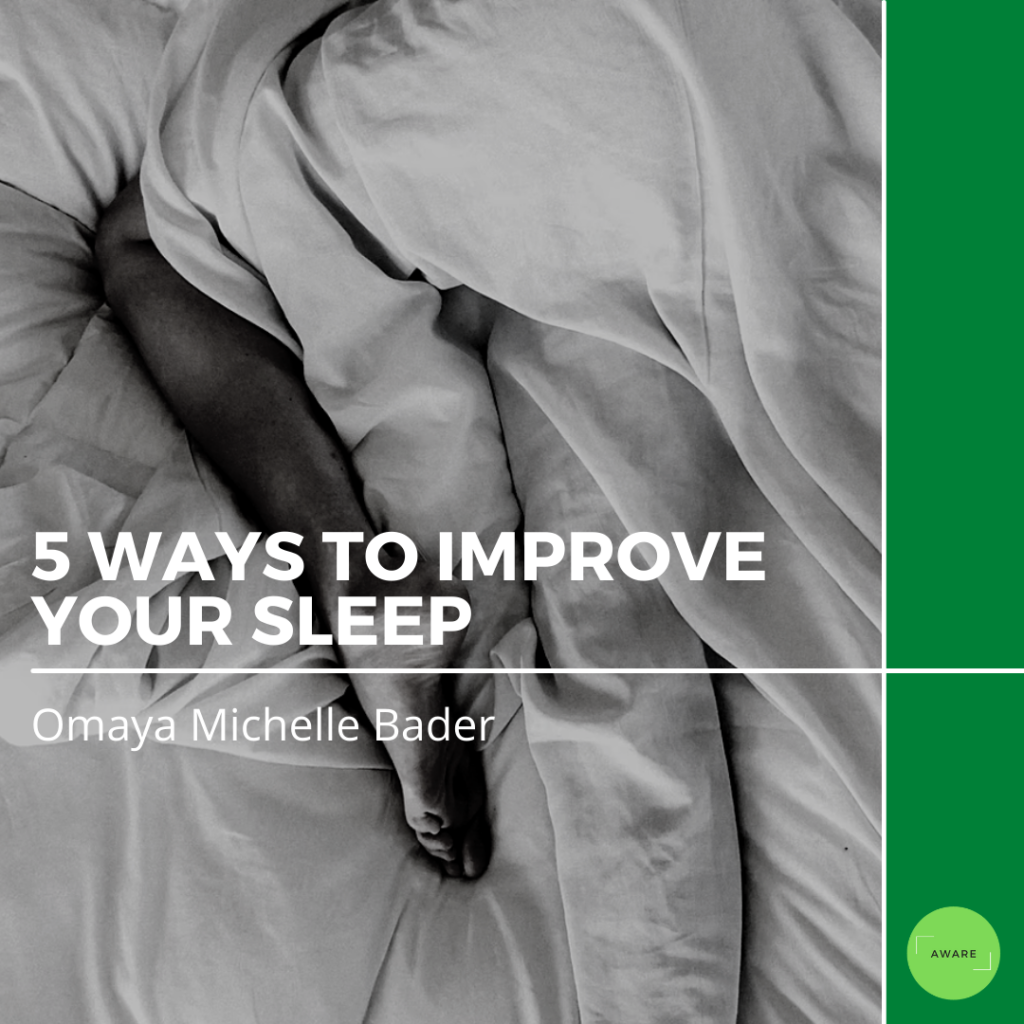Do you have trouble sleeping? So many of us have experienced nights where we just lay in bed and cannot seem to doze off into a peaceful slumber. For some of us, when we do, it gets interrupted due to factors like bad nutrition habits, the effect of blue light from using our devices, and even over-hydration before bed causing us to wake up in the middle of the night to use the bathroom! Did you know that sleeping is one of the most crucial factors that helps us to recover from mental, as well as physical, exertion?
Not only is sleep as important to our health as eating, drinking, and breathing, but it allows our bodies to repair themselves and our brains to consolidate our memories and process information. Additionally, sleep and health are strongly related. Poor sleep can increase the risk of having poor health, and poor health can make it harder to sleep. Sleep disturbances can, in fact, be one of the first signs of mental distress! Below is a list of ways to help improve your sleep and further allow you to prosper towards experiencing a healthier and happier life.
Light
It is important to get as much light as you can during the daytime, whether that is going outside for a run or even just enjoying the outdoors through activities like yoga, swimming, or taking your dog on a walk! Exposure to sunlight is thought to increase the release of a hormone called serotonin. Serotonin is associated with boosting mood and helping a person feel calm and focused. At night, darker lighting triggers the brain to make another hormone called melatonin. This hormone is responsible for helping you sleep. Conditioning your brain to differentiate between the two at different times of the day will ultimately help improve your sleep.
Routine
Go to sleep and wake up at the same time every day to help keep your body clock regulated. Your daily routine influences your quality of rest. Your sleep schedule and bedtime habits affect your mental sharpness, performance, emotional well-being, and energy level. It is best if you can maintain a consistent time for waking and going to bed. Try to avoid “catching up” on sleep during the weekends as it will make it harder for you to stick to your routine during the week.
Hydration
Drink your water during the day! Staying hydrated helps with several bodily functions, including the ability to get proper sleep. At the same time, too much fluid intake can cause excess urination that may lead to sleep interruptions. Finding the right balance of fluid intake can improve overall health and may contribute to better sleep without numerous trips to the bathroom or waking up feeling dehydrated. Additionally, it is important to avoid caffeinated drinks! Not only are they detrimental to your sleeping cycle, but they can also trigger anxiety.
Senses
Make your sleep as peaceful as possible. Your brain naturally produces melatonin – the “sleep hormone” – in the evenings after the sun goes down. However, artificial light interferes with this process, suppressing melatonin production by up to 50 percent. Try to avoid using your phone or laptop at least an hour before bed every night to make it easier for you to fall asleep. Instead, try reading a book, listening to peaceful music, or practicing a mindfulness exercise that will help you relax.
Nutrition
Eating less fiber, more saturated fat, and more sugar throughout the day is linked with lighter, less restorative sleep. Pertaining to your physical health will directly impact your mental health in the long run resulting in living a healthier and happier life all-around. Do not restrict yourself from treating yourself every once in a while!
